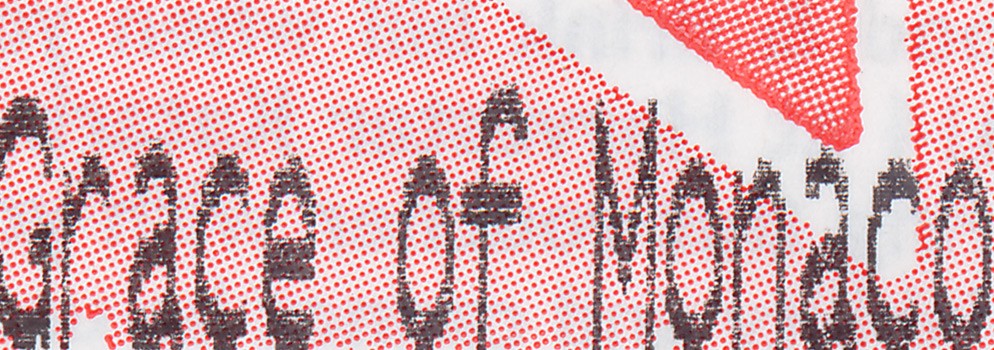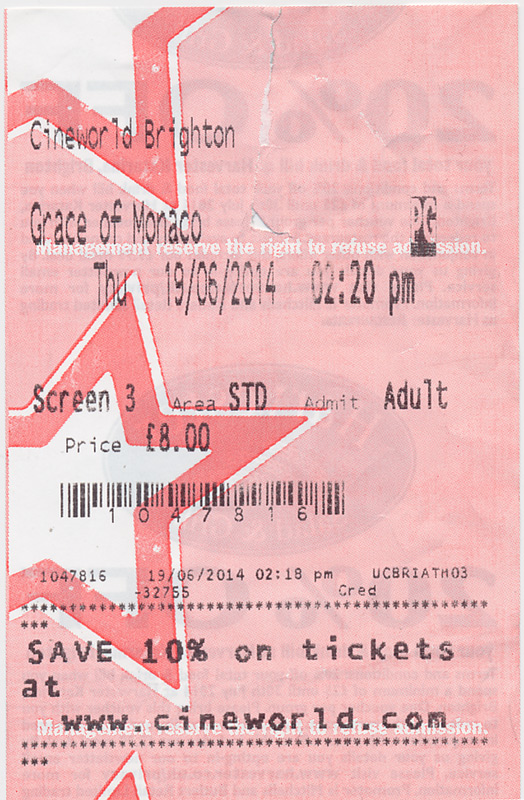Grace of Monaco

No one ever promised you a split screen
Part of this thing, whatever it is, is being the historian of record. You’re not going to see Grace of Monaco. You can’t even be bother to joke that you might, assuming that you’ve even heard of the movie in the first place. As the historian of record, I had to, did and had. Wanting so much to find Stalin’s drawing of his dreams about puppies, I instead wound up instead with Trotsky’s grocery list. Again, that may make it sound better than it is, but the metaphor does capture all the excitement of watching someone choose between two types of kale.
The second one. She chooses the second one.

Being this is the year of the apeshit crazy ape horse, I just thought it would be more nuts. One review mentioned a split screen, but either that did not make the release cut, or I was asleep during that part. Being conspiratorial, I prefer the former explanation. They’re all out to bore me! So it’s not the camp masterpiece that we wanted it to be, but maybe someday it will inspire one. I would love to see Mr. John Waters or Mr. Todd Solondz take a shot. Let’s write it for them now, shall we?

In a new low for trailer sluglines, one, and I have no idea for what, was heard to intone, ‘But every legend has a beginning!!!’ Who’s disputing that things begin?
See, this is a movie about a woman making the difficult choice over whether she should be a movie star or a princess, and how Gen. de Gaulle’s major pre-occupation in the 1960s (Alger-i-quoi?) was to break up the Monacan Royal family. There are two ways to go here: as hard Swiftian parody, or extreme unapologetic camp. Commit. Either you embrace it, or have your characters embrace it.
And there are moments that might have made it a 1970s big fat hairy man who in no way resembles Nicole Kidman who in no way resembles Grace Kelly drag act. Sir Derek Jacobi shows Ms. Kidman emotion cards, where she proceeds to mime them out (including coquettishly hiding behind a chair?), would make it to the act, just as the enthusiastic audience would call out the first lines of almost baffling expositionosity: ‘From here you can see all of Monaco, Mr. Hitchcock’ ‘Yes I know.’ I don’t know how a live act would portray the use of 2014 Los Angeles as 1961 Los Angeles, but I’m playing the Hotel Bonaventure. I called it.
And because she wore a dress, Monaco was saved (3)!
But then the audience would get bored, no matter how much good your costume of Frank Langella as the priest that tells Ms. Kelly she needs to be a better victim…was. When I say, for example, that Ms. Kidman, playing a professional film actress, has a panic attack when 1) she has to give a speech, and 2) when somebody looks at her, it’s not as fun as it sounds. Cutting between extreme Leone-esque close-ups of Ms. Kidman’s eyes to shaky cam, to wide gauzy long shots of adoring subjects just makes you sleepy. Some of it is ‘Colonialism is so last century,’ but most of it ‘You’re married to my brother. Family is all that matters. You must protect the children’ and the rest is realizing actors should be paid not according to whether or not they can say lines like this convincingly, but whether or not they survive saying them.
Instead of camp or parody, there’s instead a sense that Mr. Tim Roth evokes, or rather radiates, which is a kind of confused and powerful resentment of having been seen with, technically in, this film. It’s not so much like he’s going to punch another character, or even the cameraman, as he seems like he’s trying to work out a way to punch you. This feeling comes clearly from filmmaker as well, asking you: why did you make me do this? Well, he reasons, since you, the audience, forced make me make this film, I’m going to make it so that you won’t be able to enjoy it on any level. That way, it will never be made.
And if it wasn’t for me, it never would have been.
Profits!
Losses!
$4.00
† If you get this reference, you can see the movie. To you, everything already is camp.
The Lonely Comments Section

 [logo]
[logo]